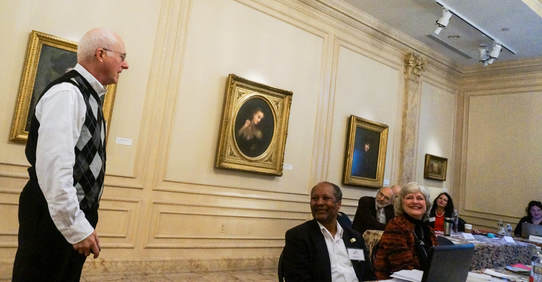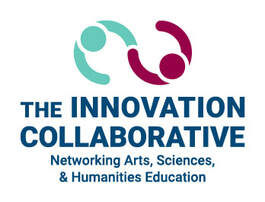
The Innovation Collaborative’s Research Thought Leaders provide the Collaborative depth in education scholarship and leadership. While the Thought Leaders meet virtually with the Collaborative both individually and collectively, they also convened in person with Collaborative members in Washington, DC on November 30-December 1, 2016.
This convening was made possible by a generous National Endowment for the Arts Art Works grant, by the National Writing Project, which facilitated the grant, and by the National Museum of Women in the Arts, which provided the facilities and staff for the meeting.
The Collaborative is making ongoing and extensive use of all that it learned in this convening. The Thought Leaders are continuing their input as the Collaborative’s plans move forward.
Successes of this convening include:
This convening was made possible by a generous National Endowment for the Arts Art Works grant, by the National Writing Project, which facilitated the grant, and by the National Museum of Women in the Arts, which provided the facilities and staff for the meeting.
The Collaborative is making ongoing and extensive use of all that it learned in this convening. The Thought Leaders are continuing their input as the Collaborative’s plans move forward.
Successes of this convening include:
- Developing a cohort of leading researchers from a variety of disciplines who can converse, plan, and share enthusiasm about interdisciplinary learning
- Revising the Collaborative’s rubric to even more deeply reflect the importance of the intersections of the arts, STEM, and humanities to promote creative and innovative thinking, in addition to cross-disciplinary learning
- Revising the Collaborative’s goals, strategies, and research methodologies to significantly strengthen its work.

Results of the research conducted include:
- The Thought Leaders had very favorable reflections about their experiences both immediately following the convening and also in the five-month follow-up assessment.
- Five months after the convening, there were significant increases in the Thought Leaders’ perception of what they learned about the intersections of the arts, sciences, and humanities and about the variety of experiences possible at these intersections. There also were increases in what they learned from the Collaborative and from each other.

